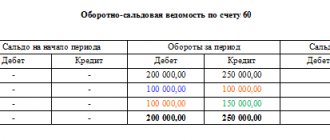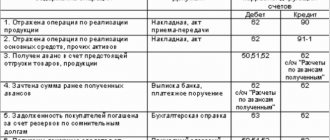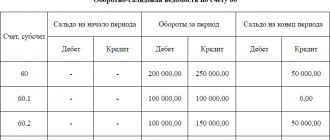Bulatova Evgenia “THORY OF LAW”
Seizure of taxpayers' bank accounts is carried out by the cameral department of the Federal Tax Service Inspectorate. Inspectors check all incoming declarations and reports of taxpayers. They are the ones who monitor the timeliness of submission and correct completion of tax reporting, and exchange electronic documents via telecommunication channels (TCC). You will learn in this article about when and why the tax office can block a taxpayer’s current account, in what cases such blocking is illegal, and how to unblock a current account.
The tax office has the right to block a taxpayer’s current account if the company, in accordance with the established paragraphs 2,3 and 3.2. Art. 76 of the Tax Code of the Russian Federation did not comply with the following requirements of the tax authorities:
- on payment of tax (penalties, fines);
- did not submit a tax return (clause 1, clause 3, article 76 of the Tax Code of the Russian Federation);
- did not submit a calculation of insurance premiums (clause 2 of Article 76 of the Tax Code of the Russian Federation);
- did not submit a calculation in accordance with Form 6-NDFL (clause 3.2 of Article 76 of the Tax Code of the Russian Federation);
- did not ensure electronic document flow with the Federal Tax Service, receipt of documents on the TKS upon inspection; did not send an electronic receipt to the Federal Tax Service Inspectorate for the receipt of demands or notifications sent by the tax inspectorate under the TKS (clause 2, clause 3, article 76 of the Tax Code of the Russian Federation).
This list of reasons for blocking a tax account is exhaustive. In addition, operations on the account may be suspended for the reasons specified in clause 10 of Article 101 of the Tax Code of the Russian Federation. If the tax authorities decide that the organization does not comply with the decision that was made as a result of a desk or field audit, due to the fact that the total value of its property, according to accounting data, is less than the amount of arrears, penalties and fines. However, in this case, before blocking the account, the Federal Tax Service must make a decision on interim measures in the form of a ban on the alienation (pledge) of all property of such a legal entity.
| Important! If a company has not submitted accounting and other financial statements to the tax office, as well as in cases of untimely submission of such reports, the tax office does not have any grounds for suspending transactions on the current account (see Letter of the Ministry of Finance of the Russian Federation dated July 4, 2013 No. 03-02- 07/1/25590). |
Tax office decision to block an account
Having decided to block a company’s bank account, the tax office is obliged to notify the company itself about this by sending it a copy of the decision. A copy of the decision can be handed to a representative of the taxpayer company, or sent by registered mail with notification. Then the tax inspectorate sends the decision to suspend transactions on the accounts to the bank and the organization itself no later than the next day after its adoption. The decision is sent to the bank by email, and to the taxpayer by registered mail with notification. More information about the procedure for sending the tax authority’s decision to suspend operations on taxpayer accounts to the bank can be found in Order of the Federal Tax Service of Russia dated December 1, 2006 No. SAE-3-19/ [email protected] (see Appendix to the order of the Federal Tax Service of Russia dated December 1, 2006 No. SAE-3-19/ [email protected] ).
In practice, the taxpayer receives a tax letter when his current account is already blocked. Having received a tax decision, the bank is obliged to immediately execute it and notify the Federal Tax Service of the amount of funds in the taxpayer’s current account. Some banks inform their clients about the arrest of a current account and the suspension of transactions on it, but this is an exclusive initiative of each bank; there is no legal obligation to inform their clients about such blocking. If the bank account of a tax organization is blocked, such organization will not be able to open new accounts (see clause 12 of Article 76 of the Tax Code of the Russian Federation).
| Important! If the current account was blocked by the tax authorities due to debt to the budget, debit transactions on the account can be suspended only within the amount specified in the decision to suspend transactions on the taxpayer’s accounts (see clause 2 of Article 76 of the Tax Code of the Russian Federation). |
Consequences of blocking a tax account:
- The arrears have been repaid, but operations have not resumed. The time difference between making a payment and receiving funds to the budget can reach 3 days. You can speed up the unblocking process by submitting proof of tax payment to the Federal Tax Service. This may be a bank statement or an original payment order with a bank mark.
- If a bank account has been blocked by the tax authorities in one bank, another bank may refuse to open a new account. Until 2014, if an account in one bank was blocked, it was possible to open another account and work through it. Now banks are prohibited from opening new current accounts for individual entrepreneurs and organizations whose operations on existing accounts have been suspended.
Suspension of operations due to non-payment of tax
In Article 76 of the Tax Code of the Russian Federation, this basis for suspending operations on a bank account is given as the main one (part one of paragraph 2). However, as practice has shown, tax authorities relatively rarely use this tool in such cases. The reason, most likely, is that they prefer to use the procedure for indisputable tax collection (Article 46 of the Tax Code of the Russian Federation). Frankly speaking, if the tax authorities have the authority to collect tax from an organization without acceptance, giving them the right to suspend transactions on a bank account in such a situation seems unnecessary and unclaimed. Of course, we can say that such a right can be used by tax authorities in cases where they do not have the right to indisputably collect tax from an organization (subparagraphs 1 and 2 of paragraph 1 of Article 45 of the Tax Code of the Russian Federation) or have been lost (paragraph 3 of Article 46 of the Tax Code of the Russian Federation) . However, in our opinion, this only speaks of a shortcoming of the code, which, while referring to the judicial procedure for collecting taxes, nevertheless retains the possibility of applying interim measures not by the court, but by the tax authority.
By the way, the sending of a collection order by the tax authority to the bank is also often called the notorious “seizure” of the account, especially if the funds in the account are not enough to satisfy the tax authority’s demands. This is facilitated by the subjective perception of the situation: debit transactions on the account can be made only after the arrears have been fully repaid.
How to unblock a current account
Let's take a closer look at how a company or individual entrepreneur can unblock a bank account blocked by the tax authorities in different situations.
Situation 1. Blocking of the current account for failure to comply with the demands of the tax authorities to pay taxes or insurance contributions
This reason is provided for in paragraph 2 of Article 76 of the Tax Code of the Russian Federation, which states that the Federal Tax Service can limit the debtor’s banking operations only to the extent of the amount of arrears, the payment of which was demanded from him. All bank accounts are blocked and funds are debited from them until the arrears are fully repaid. If there are balances in several blocked accounts, the permissible limit may be exceeded. For example, if a company had an income tax arrears in the amount of 3,000 rubles, the tax office demanded the company to pay 5,000 rubles. including penalties. If a company has three current accounts, and the tax office has blocked not one of the existing current accounts, but has, in principle, suspended transactions on all bank accounts of this company. If each of the company’s accounts had a balance of, say, 10,000 rubles, then the Federal Tax Service seized not the 5,000 rubles stated in the demand, but 15,000 rubles. This situation can only be resolved by sending a written application to the Federal Tax Service before the arrears are written off in triple the amount.
Situation 2. Blocking of the current account for late submission of the declaration
If a taxpayer has delayed the deadline for submitting any of the declarations provided for by the Tax Code of the Russian Federation by more than 10 days, the Federal Tax Service has the right to restrict all transactions on his bank accounts (see clause 3 of Article 76, clause 6 of Article 6.1 of the Tax Code of the Russian Federation ). This right is granted to the tax authorities only in cases of failure to submit tax returns; late submission of all other reports is not such a reason. As for the bank account, it is completely blocked, and its owner will not be able to manage it fully. The law provides for the right to carry out only transactions related to payments related to labor relations and the payment of taxes and fees.
Situation 3. Blocking of the current account in the absence of a receipt confirming the taxpayer’s acceptance of electronic documents from the Federal Tax Service
The ability to limit transactions in a bank in the event of failure to submit an electronic receipt to the Federal Tax Service for receipt of documents or requirements has been in effect since January 1, 2015 (see Article 23 of the Tax Code of the Russian Federation). In this situation, the account is also blocked completely. Taxpayers are required to confirm receipt of documents sent to them from the Federal Tax Service within 6 days. An electronic receipt can be sent to the tax office via telecommunication channels upon receipt of the following documents:
- requirements for the submission of documents;
- requirements for providing explanations;
- notification of a call to the Federal Tax Service.
The Federal Tax Service blocks the company's account if a receipt is not submitted within 6 days, however, a decision can be made within 10 days after the expiration of this period. Therefore, the taxpayer company still has time to correct this shortcoming and prevent its current account from being blocked. Mandatory payments are allowed in the same order as when blocked for lack of a tax return.
If after reading this article you still have questions or need advice, you can call or write to us. We will help you sort out any difficult situation. “THEORY OF LAW” Evgenia Bulatova 89134323913 [email protected]
Grounds and procedure for suspending account transactions
The procedure for suspending account transactions is regulated by Art. 76 of the Tax Code of the Russian Federation and means the bank terminates all expense transactions, with the exception of those whose priority, according to civil law, precedes the fulfillment of the obligation to pay taxes and fees. Received funds are credited to the account without restrictions.








